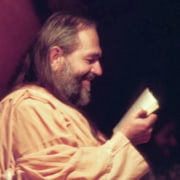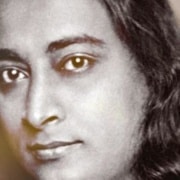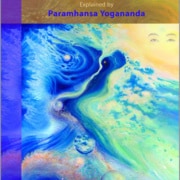(I wrote this letter years ago as a Christmas present to my fellow disciples in the monastic
order of Self-Realization Fellowship, in Los Angeles. I have been uncertain whether to adapt
this letter to the general reader, or to offer it to him substantially as I wrote it, asking him
rather to adapthis mind to what might impress him as very special advice to a group of
people with very special problems and outlooks of their own. Acting on the advice of several
of my friends, I have decided finally to keep the letter more or less as it was. Any real-life
situation, after all, is bound to have some meaning also for people in other life situations,
simply because all human conditions are only varied expressions of the one, all-unifying
Ocean of Life.)
Christmas, 1957
I.
My Dear Ones:
Two years ago a brother disciple asked me, as my Christmas present to him, to write him a
letter expressing how I thought he was progressing on the spiritual path, what faults I felt
he should particularly try to overcome, and what virtues to develop.
Well, I tried – hesitantly. (Advice, after all, like bread cast upon the waters, has an insistent
way of coming back to the giver!) Fortunately, that brother told me later that my words had
helped him.
Now here it is, another Christmas, and I’ve wanted to find something to give all of you. My
brother’s gratitude two years ago helped me to understand that advice can be a valid form
of sharing, and not only a sort of “talking down” to others. But I think that the criterion of
the validity of any advice one gives must be the extent to which one includes himself in his
advice. In fact, true counsel should be directed with one’s own shortcomings first in mind.
In this spirit I’ve decided this Christmas to write a letter to myself – an open letter for all of
you to read. I don’t mean to exhaust you with long-winded confessions, but rather to share
with you certain thoughts which, while they spring out of my own inner searching, may also
be useful in a more general way to some of you.
II.
When our Master was a mere boy, he cried for the Divine Mother’s love as few men cry even
for worldly possessions. Whole days he would spend in thinking only of Her. When he could,
he remained by himself, meditating long hours. After meditation, he silently and lovingly
offered every action to God.
He was no misanthrope, shunning the society of men because they displeased him. He
loved people, and endeared himself to them by his kindness, his wit, his ability to inspire
them. But he wanted God, and he knew that to find the Supreme One he would have to be
one-pointed in his inner search.
After coming to the hermitage of his guru, Sri Yukteswarji, he became if possible more in
earnest than ever. Other disciples talked instead of meditating. Master spent many hours in
solitary communion. Other disciples forgot God, whether they worked or loafed. Master kept
his mind all day long focused at the Christ center, mentally talking to Divine Mother.
Wherever he went, in his heart there was a never-ending song of divine love.
He had been sent to earth charged with a tremendous mission. Lesser teachers would have
bowed under the mere thought of the responsibilities involved. Lesser teachers would have
destroyed their health and their peace of mind worrying, struggling frantically to get
everything done. They would have consumed themselves with a sense of their own
importance. But Master never forgot for an instant that the real Doer was God. He was only
an instrument. God’s was the hand that guided that instrument. Inwardly, he was always
free and at peace.
When organizational responsibilities threatened to take his mind from the Divine Mother, he
never said, “Well, I will do this work first; it is more important. Later I shall think of God.”
“No work is possible,” he wrote, “without the power to perform it borrowed from Thee.” He
would put everything aside to chant or meditate until his mind was firmly rooted in God.
Only then would he return to his work. That is how he was able to accomplish such
tremendous things in his life. He never acted from ego-consciousness.
Man’s power is limited, but God’s is without limitation. And always Master’s prayer was,
“Lord, guide and strengthen me, for without Thy help I can do nothing.”
Years ago I approached Master one evening for his blessing. Though I said nothing, inwardly
I petitioned him to help me taste the delusion-dispelling sweetness of Divine Love. Looking
up, I saw his face lit with a tender, blissful smile. I knew that he had heard my prayer, and
that it had pleased him.
Another disciple, feeling great love for the guru, was wont to repeat mentally, “I love you,
Guruji.” One day he met his Guru on the walks in Encinitas. Smiling lovingly, Master said, “I
love you, too.”
Master was pleased with everything we did to serve him, or to help others. He was pleased
when we meditated long hours. But the thing that touched him most deeply was when we
expressed divine love, or if we sincerely yearned to express it. To him, love was the very
soul of the spiritual life.
III.
Dear ones, the spirit many of you show daily is so wonderful that at times, truly, it brings
tears of joy to my eyes. Such willingness, such sincerity, such a spirit of service and an
eagerness to progress on the path are rarely to be encountered in this world – yes, even in
religious communities. How pleased Master must be with you! How tenderly he must smile
in your hearts and shower you with blessings.
From the nucleus that we have here now, the message of Self-Realization Fellowship cannot
but spread to thousands – nay, to millions. The world needs this work – needs it
desperately. Who of us has not felt a sadness, on going downtown, at the sight of so many
peaceless faces? Today a terrible disease gnaws at the hearts of men – the cancer of
spiritual emptiness, of materialism which destroys man’s inner peace and contentment.
All of us here are on fire with a zeal to spread a message that can effectively combat this
disease, so especially rampant in our times. Men need Kriya Yoga, and for reasons we
cannot fathom Divine Mother has seen fit to choose us, out of millions, to spread the news
of its liberating power. We want to prove worthy of the blessing She has bestowed upon us.
How can we best serve Her work?
My own experience may or may not be typical of your own, but I hope it will at least be
instructive. Ever since I came here I have been haunted by a sense of the urgency of what
we are doing. I have worked hard and, perhaps, creatively. I have not been content merely
to do the work I have been given, but have always tried to find better ways of doing it. I
have not been satisfied to do only the work that comes to me unsought, but have tried,
during every lull in that work, to find other ways of promoting the SRF cause. I think that
even in sleep my dreams have given me ideas in this direction!
But I have often been a worker at the expense of being a devotee. Thoughts of my work
have driven out thoughts of my Lord. There are many times when I have been workcentered,
not God-centered. Except for my meditations – and not always in them – I have
often been too busy to remember God.
I am not saying that I have been wrong to work hard. No! Would that I could do a hundred
times as much. Master’s cause will never grow if we sit around lazily waiting for him or for
fellow devotees to do all the work. And we shall never grow spiritually, if we do not throw
ourselves with all our hearts into the work to which we have been drawn in this life.
But what is the use of work for God that is undertaken without the thought of God? I have
been wrong because I have too often suffered from misdirected zeal. My zeal has been too
much outward, not enough inward. The proof that outward zeal is insufficient has been
forced upon me by the realization that even my work, at such times, has been of mediocre quality. Some of it has actually represented wasted effort.
Yet when I think of God, my very least work goes well.
Our work should be a conscious, loving service of the Lord. It should be a devotional
offering to Him. When mine has not been such, what has been the result? I have worked
with impatience. I have worried when things did not get done quickly – worried because of
all the other things I still had to accomplish. I have tried to tackle too many things at once –
as if I were a hundred people, not one weak, nave, none-too-gifted young monk. I have
whipped myself to ever greater activity, saying, “But how can I rest? There are millions who
need this message! People everywhere are seeking understanding, peace! The evils of
materialism are spreading like a dark stain. How can we combat its errors, and bring
enlightenment to the world, except through the liberating power of truth?”
But I have found that one mind can do only so much. My effective labors have often given
way to ineffectual worries, and I have lost touch with God. I have lost a true sense of
perspective, and then nothing has gone right – either with my work or with my inner life.
You may not have had similar weaknesses to combat. But perhaps you have had others.
And perhaps those trials have temporarily made you, too, lose touch with God and wonder
what it was you had done wrong. Could it be that you, like me, have sometimes suffered
from a misdirected zeal?
Whose work is this that we are spreading – mine? yours? Certainly not! Whose world is this
that we are so anxious to improve? Not ours, either! Even our bodies are not our own. This
is God’s show. When we attempt to take too great a responsibility from Him, we must
sooner or later learn that we are only like little children pushing a moving locomotive. We
may think we are moving the engine with our own power, but in fact it is moving on its own
power, and nothing we do can change its speed. Nor, if it stops, can we move it even a
centimeter. What happens, rather, is that by pushing it we ourselves get drawn forward.
Once Master and Meera Mata were walking in the garden in Encinitas. Several yards ahead
of them they saw Rajarsi Janakananda [Yogananda’s foremost disciple] sitting on the lawn
in profound meditation. Master whispered, “Let us walk quietly now, so as not to disturb
him.” When they were out of earshot, he continued, “You have no idea what great blessings
are drawn to the work every time one of its followers goes as deep in meditation as Rajarsi
does.”
Centuries ago, Saint John of the Cross said words to the effect that one act of divine love
(that love which is the fruit of deep meditation) is of greater value to the Church than the
combined activities of dedicated, but unmeditative, monks, priests, and nuns.
The greatest thing we have to give to the world is our spirit – our devotion. If we lack that,
of what avail the letters we write, the flowers we water, the books we print?
We all want to serve God. We all want to serve the work to which He has drawn us. But let
us never forget that which pleases God and Master most – our love.
Our Guru seldom praised me for my labor. But he did, sometimes, praise me for my
devotion. For he was more anxious that I, and all of us, work to develop and perfect
ourselves in this heavenly quality than that we do tremendous outward labor, but in
forgetfulness of God.
Once, owing to some physical difficulty that I was experiencing, Master freed me for a time
from most of my work. He told me to spend two days a week resting in Encinitas, and
generally to take it easy. I spent my free time in thinking of God. After some weeks of this
practice, I saw Master. Much to my surprise, he said, “You are doing wonderfully.”
Now, curiously perhaps, my ill health at that time was to a great extent due to the fact that
I had been working so hard. Yet he hadn’t thought to praise me during that long period of (I
hope!) productive work. It was only now, when I was doing nothing, that he praised me for
what I was doing! Why now? Because the chief purpose of his mission was to teach us, and
all men, an inner, divine productivity.
I knew Master three and a half years. That is not long, but it was long enough to hear a
considerable number of his priceless discourses. Many hours he would talk with the monks
on various philosophical points and on matters pertaining to the work. Often, too, when we
were alone he would discuss these issues with me, personally. And if there is one point that
stands out in my throng of sweet memories, it is the fact that what pleased him always,
above everything else, was devotion, and a constant inward remembrance of God.
Philosophical truths were, for him, only avenues to the expression of divine love. Good work
without devotion might have impressed him, but it never thrilled his heart.
Ah, my brothers and sisters, would it not be wonderful if more of us were on fire with love
for God? How many weep for the Divine Mother as Master wept when he was a boy? Our
greatest work in life should be to express that divine yearning, that love. When we can
reflect it, we shall be able to work ten times as hard, and a hundred times as effectively, as
we do when we draw only on our own scanty powers.
Working in the garden one may think, “I have too many weeds to pull and flowers to water
and lawns to mow to think of God.” But no! To think of God and to love Him is our first job
in life. Is it not for Him that we are doing everything else? Sukdeva, the son of Vyasa, and
one of the great sages of ancient India, said, “All time is wasted that is not spent in seeking
God.” When we think of the Lord first, our hearts sing for joy and all our work goes easily.
Working in the printing department, we may say, “But I am rushed with deadlines. How can
I think of the Divine Mother? Let me wait until things go a little more slowly.” We must
discipline the mind! Divine Mother has given us a project more urgent than the printing of
any book, and that is to learn to live constantly in the consciousness of Her. Her deadline of
death is more important, and less alterable, than any publishing date.
And this is true for every department of our work. Let us think of God. Let us be drunk with
His love. That is the first and the greatest thing that we can do to spread the work. Indeed,
in the deeper sense that alone is the work.
IV.
Some years ago an SRF monk complained that we do not have enough time here in the
hermitage for meditation. I was amused to note how he spent his free time. Hours he
wasted in superficial reading and in idle talk. There are renunciates here to whom
meditation has always been a ruling passion. This monk was not one of them.
Our life was outlined for us by our holy Guru. It is excellently balanced in every respect, and
it affords us plenty of time to meditate, if we will use it.
But he who gauges the quality of his meditations by the number of hours he spends in
meditation follows a dangerous practice. The most important factor in everything we do is
not time, but intensity. The longer we meditate intensely, the better. Many a spiritual novice
idealizes time at the expense of depth. The result is that he develops the pernicious habit of
absent-mindedness in meditation. I have seen such devotees in our group meditations
begin to nod almost as soon as they take their seats! A dull mind is no help to spiritual
progress. Master once reminded the disciples: “The minutes are more important than the
years.” In meditation, as in life, it is the minutes that count.
I had to go out in the evening recently with one of the monks. The hour of our departure
was early and we had hardly half an hour for our evening meditation. Later, this monk
remarked with surprise, “That was one of the best meditations I’ve ever had.” Of course it
was! Having so little time, he made a more concerted effort.
Haven’t you, too, noticed that some of your best meditations are also your shortest ones?
That does not mean that all your meditations should be brief! But they should all be deep.
Meditate as long as you can, with intensity. But always, with intensity. Sit an hour – nay, sit
half an hour, and throw yourself heart and soul into your practice of the techniques, into
your prayers. When you can do this without diminishing your zeal, extend the time. That is
how saints are produced.
Intensity should be practiced in every phase of our life. It has been my experience that
among the disciples who spend the longest overtime in the office there are some whose
work output is not correspondingly large – indeed it may even be negligible. One devotee,
during an office changeover several years ago, had most of her duties temporarily taken
away from her. During this lull in her work she could have finished her daily duties in an
hour. Yet still she spent extra evening hours at her desk!
Keen, alert attention is the way to find the time for everything we need to do. And it is the
only way to reach God. Master was never idle. “Be constantly active,” was his counsel. He
meant that even when we are sitting still, the mind should remain alert, active in the sense
of alive – never dull.
And one of the best ways to keep sharp the needle of attention in everything we do is to
hunger night and day for the Lord.
V.
Until a renunciate is centered in the thought of God, he should not attempt to shoulder the
problems of the organization, except as they come his way in the course of a regular day’s
work. This is not an argument for irresponsibility. It is a call to assume wholeheartedly our
first responsibility: devotion to God. But if a devotee cannot work supremely hard to carry
out this divine assignment, he should know that it is better to plunge himself into spiritual
work, even without the thought of God, than to do nothing or to live only for his own
pleasure.
Master said, “Never be too busy to sing secretly to the Lord.” Another time he counseled
unmeditative disciples to say to themselves, “This can wait and that can wait, but my search
for God cannot wait.”
Are there any rules that might help us to “sing secretly to the Lord”? Here are a few
suggestions; perhaps you will be able to think of other and better ones.
1. More silence and solitude. Master practiced this rule when he was seeking God. He
adhered to it even after he had found the Beloved. He seldom permitted the devotees
working around him to speak unnecessarily. “Remain in the Self,” he would say. “Think of
the Divine Mother.”
How often he praised the virtue of silence! There were two sisters in particular who seldom
chattered frivolously, but kept their thoughts reserved for God. “They are real sannyasis,”
Master commented, proudly. “That is the way to get God!”
Divine silence is not cold or hostile. The feeling of brotherhood does not diminish in such
quietude; it grows warmer and deeper. How often, indeed, do our words merely conceal our
real selves! The saints are wiser than most of us; they converse by silences.
Too much joking is one of the worst detriments on the spiritual path. I do not mean that we
should never laugh, but our laughter should always be centered in an inner earnestness,
lest it take our minds away from God. Master said, “Joking makes the mind light, so that
when the time comes for meditation one finds it difficult to meditate deeply.” He himself
joked sometimes. In fact, he had a perfectly wonderful sense of humor. What he was
against was habitual light-mindedness.
He was particularly anxious that we practice silence when we were gathered together in
groups. Groups, he pointed out, form a fertile soil for restlessness and mental noise, and
where there is noise God quietly disappears from our consciousness. Silence is the way to
keep Him near us.
2. Better use of our free time. Instead of reading idly or talking when we have free time, we
should give those precious moments to God. That is what Master repeatedly urged us to do.
“While others are talking and wasting time,” he said, “you go out into the garden and
practice a few Kriyas.”
When I first came to Mt. Washington, other monks would spend long hours in the kitchen,
conversing and listening to music. I was certainly no better than they, but perhaps I had
suffered more. I couldn’t bear the thought of prolonging unnecessarily the pain of delusion.
I spent all my free time meditating, or chanting mentally to God. The others mockingly
dubbed me, “The Monk.” But I have never regretted my meditative labors. All those who
laughed at me have left the path, but I, with God’s grace, am still here.
“The minutes are more important than the years.” What time have we to seek God, save
this brief moment? How easy it is to lay elaborate plans for tomorrow’s spiritual endeavor!
It absolves one of the necessity for working quite so hard today! But the Lord rules in the
kingdom of the Eternal Present. It is now that we must work to find Him. Tomorrow may be
too late.
3. Practice God’s presence in activity. Much of our daily life is spent in work or in other
outward activities. Our minds may often become engrossed in what we are doing at the
expense of the thought of God. We must somehow discipline ourselves to carry at least the
feeling of His presence into everything we do.
How is this to be arranged? I think the simple advice, “Do it,” is not enough. Some sort of
exercise is needed to help us form the habit.
In the early years of the work, Master conducted early morning group meditations at Mt.
Washington headquarters. After each such meditation, so Daya Mata recalls, he would lead
the disciples out of doors to sweep the walks. And he would urge them, as they swept, to
continue in the thought of God. In this mild activity it was comparatively easy for them to
practice God’s presence. Having once established the habit of feeling the divine presence
outside of their meditations, it was easier for them to carry it into the more strenuous daily
labors that followed.
I think we should follow on our own the training Master prescribed for the disciples in those
early years. We should start our practice of sharing every thought, every labor with God by
first thinking of Him during uninvolving activities – those requiring little concentration or
physical effort, such as sweeping the walks, strolling quietly, or mopping the floor. During
such unexacting occupations, we should make every mental effort to bring the Lord into our
motions. As we are able to do so, we shall gradually develop the habit of bringing Him
into all our activities – even into those requiring great effort of body or concentration of
mind.
Let us suppose you go for a walk. Try mentally to share every movement, every sense
impression, every thought, with Divine Mother. Ordinarily we may consider most of our
thoughts and impressions too trivial to share with God. But that is how we cut ourselves off
from Him. We must sense Him in every thought, in every feeling.
If, therefore, as you walk, you hear a whistle blowing at a downtown factory, or a bird
singing nearby, or a car passing on the road outside the colony, try to let Divine Mother in
on this little experience. If you see a tree waving gently with the breeze, or notice the
golden sunlight on a palm branch, share these impressions of sight with Divine Mother. As
you feel your body walking, feel Divine Mother walking through you. And every thought that
passes through your mind, try to remember to share it with Her.
If you share my experience during this practice, you will presently begin to feel that there is
one great sea of Life underlying everything. The whistle’s blowing and the bird’s singing will
seem to carry some special message from Divine Mother for you! How beautiful those
sounds will seem then! The waving tree, the sunlight, will seem to be means Divine Mother
uses to signal something of a very personal nature – to you! How lovely those sights! Your
body will no longer feel like your body. It will be Her body. For somehow you won’t seem to
have a separate existence anymore. You will be just another whistle note, bird call, or spot
of morning sunlight on a vast sea in which Divine Mother is the Sole Reality. How
inexpressibly close She will seem then!
Later, as you work, you may find that it is a long time before the feeling of Her presence
subsides. Alas, it probably will subside – at least on most days. That is why we must renew
our practice daily. But in time, so Master promised us, we shall find God with us always.
May that day come soon!
VI.
Dear ones, how easy it is to be sidetracked from the greatest commandment – to love God!
How easy it is to follow lesser rules at the expense of important principles. Fasting and
other ascetical practices are so much less exacting than devotion. But love alone can truly
satisfy us. And love alone can conquer God.
The true monk should arise in the morning with the name of God on his lips. Instead of
thinking of the duties and problems of the day, he should kindle the flame of divine
yearning in his heart. Cloaked in tranquillity and filled with inner delight, he should spend
the early morning hours in chanting, practicing yoga, and mentally calling to the Divine
Mother to bless him with Her love.
At breakfast, and during his other meals, he should eat in the joyous thought that he is
maintaining God’s temple.
His day’s work should be a service; then it will not seem like work. Silently, he should offer
every movement, every thought, to the Divine Mother; consult Her for answers to his
problems; share with Her his worries and difficulties.
So should he pass his day, as deeply in love with God during activity as in his most ardent
prayers. All his smiles should be for his Beloved. All his tears should be, not for earthly
disappointments, but only for Divine Mother’s love.
In the evenings, resisting all invitations to pass time in friendly but unnecessary talk, he
should retire quietly to his room. There the gathering veils of night will gradually hide his
mortal memories in oblivion as he sits again in meditation, joyously pouring out his heart’s
love at the Divine Mother’s feet.
If he cannot meditate all evening with sustained devotion, he should go for a walk, or busy
himself with simple tasks, keeping his mind free to think of God. Later, he should meditate
again.
When he sinks into the gentle arms of sleep, his last thought should be of God; his last
resolution should be to awaken the following morning with an even deeper devotion.
My dear ones, we have done much to perfect our life here. Now let us work to develop this
quality, greatest of all – divine love.
Fix heart and thought on Me! Adore Me!
Bring offerings to Me! Make Me prostrations!
Make Me your supremest joy! and, undivided,
Unto My rest your spirits shall be guided.
– Song Celestial:IX
May you have a blessed Christmas.
 Many people have been inspired by a photo I took of Swami Kriyananda. It is in people’s homes and altars all over the world. It is the cover photo for the large-sized book on the life of Swamiji, Swami Kriyananda: A Life in God (right), which includes hundreds of the best photos from his eighty-seven years of life.
Many people have been inspired by a photo I took of Swami Kriyananda. It is in people’s homes and altars all over the world. It is the cover photo for the large-sized book on the life of Swamiji, Swami Kriyananda: A Life in God (right), which includes hundreds of the best photos from his eighty-seven years of life.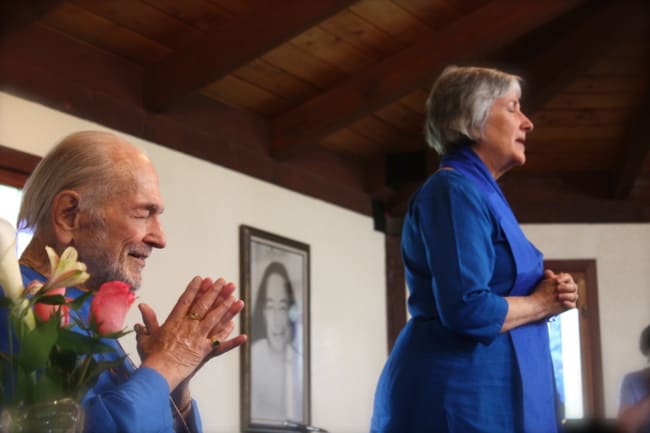
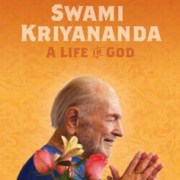
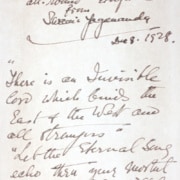
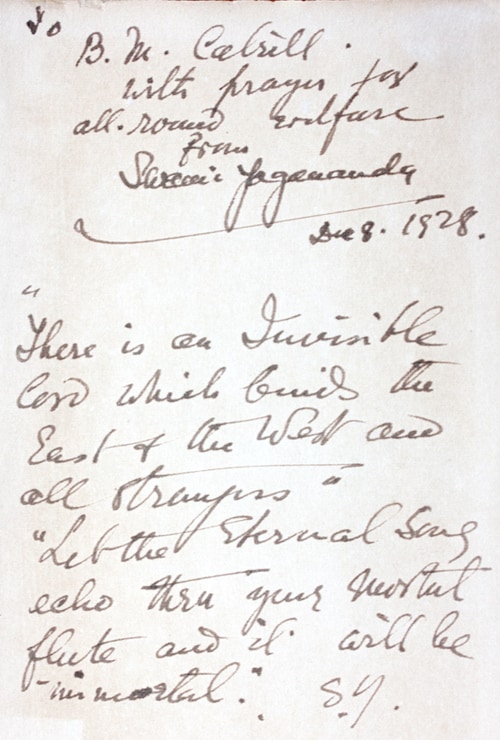
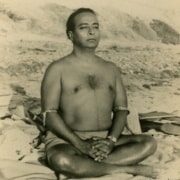
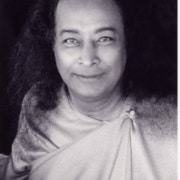
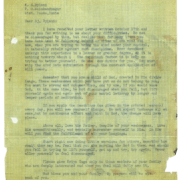
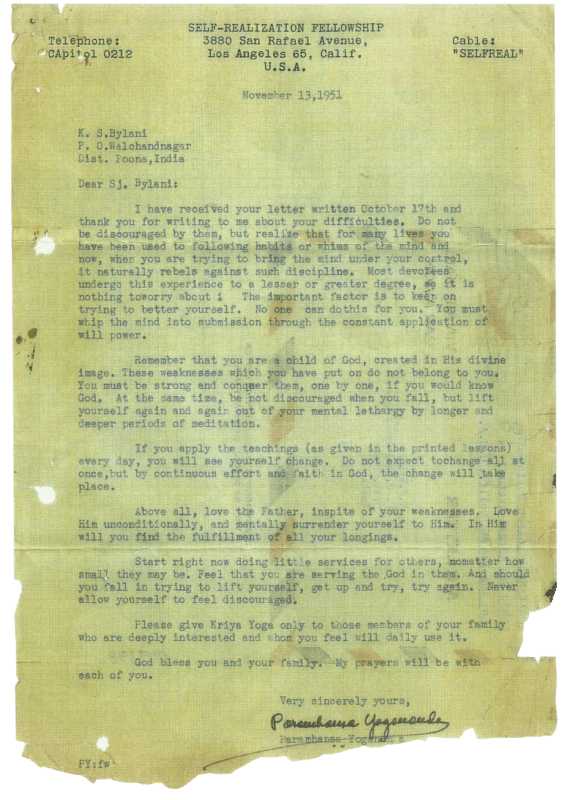
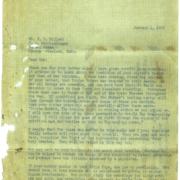
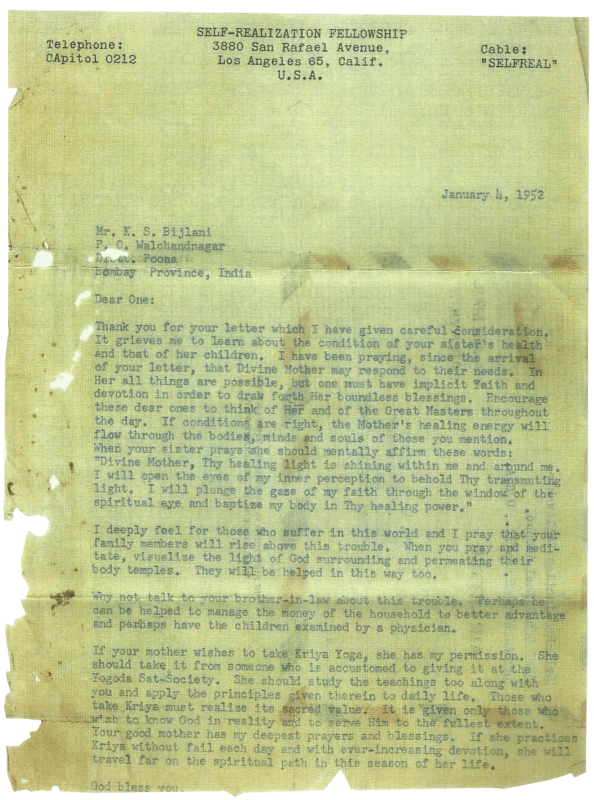
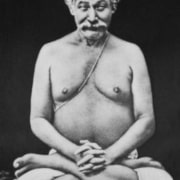

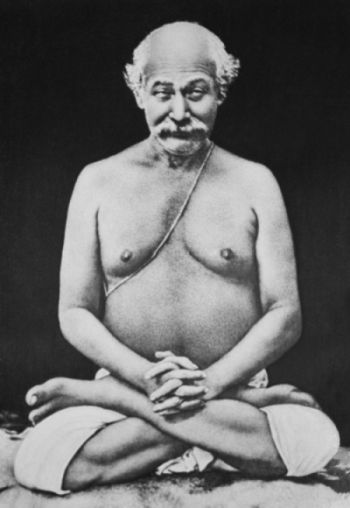


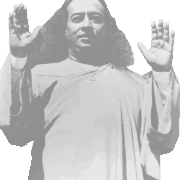
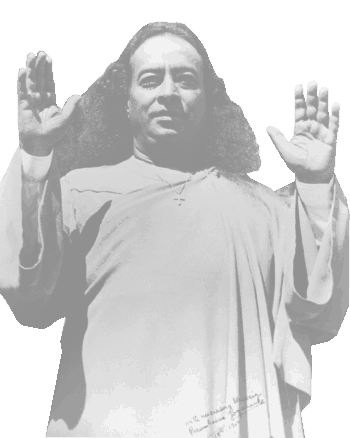 Prepare for these techniques with prayer and meditation, calming the mind and asking God that Divine Will be done. Feel God’s presence as the source of all healing energy and visualize as clearly as possible the person receiving this blessing.
Prepare for these techniques with prayer and meditation, calming the mind and asking God that Divine Will be done. Feel God’s presence as the source of all healing energy and visualize as clearly as possible the person receiving this blessing.